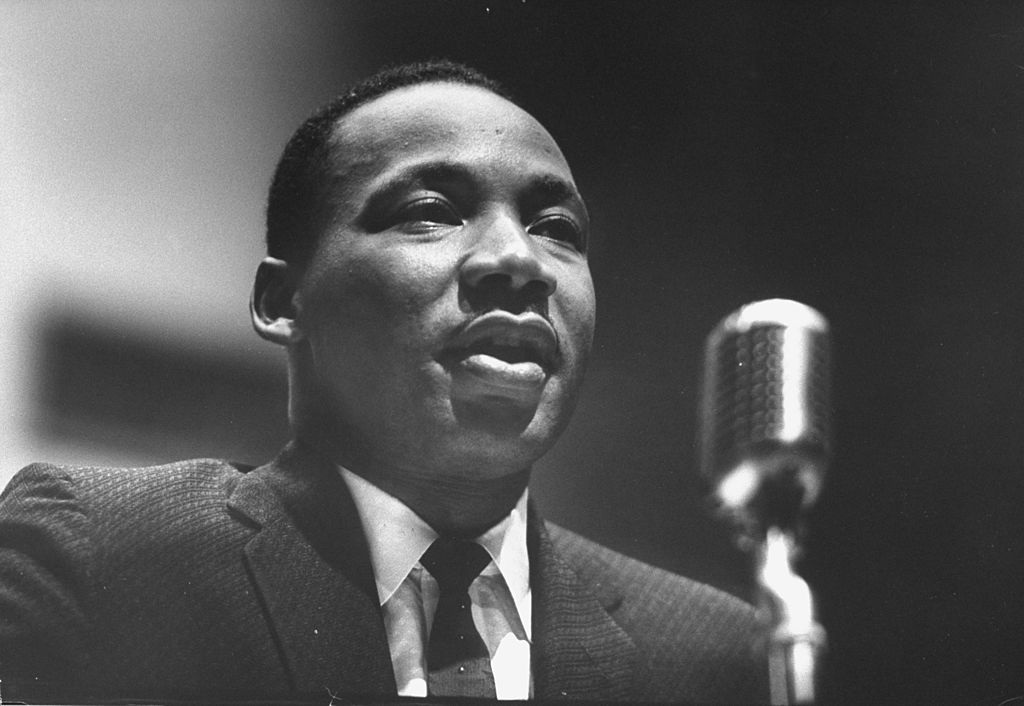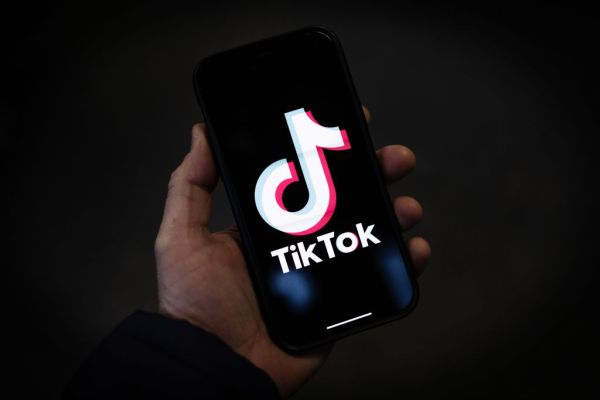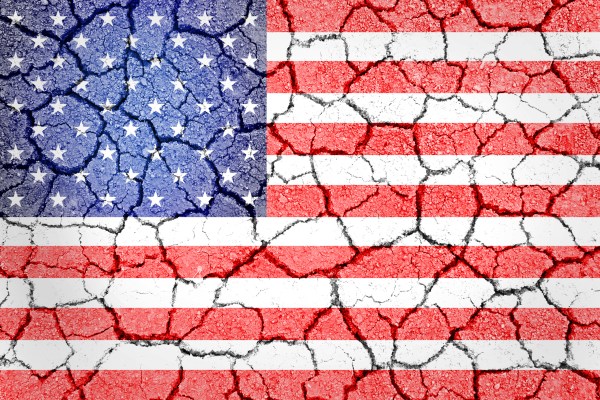Happy Monday! The Beyhive can finally rest easy: Brazilian Justice Minister Flávio Dino made clear over the weekend he is not investigating Beyoncé in connection with the pro-Bolsonaro riots that took place earlier this month.
Noticeably silent about Shakira, though.
Quick Hits: Today’s Top Stories
- Richard Sauber, special counsel to the president, said Saturday he found five more classified documents at President Joe Biden’s home in Wilmington, Delaware, on Thursday while conducting a search of the property accompanied by Department of Justice officials. Personal lawyers for Biden had found a classified document on the premises on Wednesday, and, per Sauber, “suspended any further search” because they do not have active security clearances. Attorney General Merrick Garland has appointed a former U.S. attorney, Robert Hur, to serve as a special counsel to investigate Biden’s allegedly improper storage of the documents.
- Treasury Secretary Janet Yellen sent a letter to congressional leaders on Friday informing them the U.S. government is projected to hit its statutory debt limit of $31.4 trillion on Thursday, at which point Yellen will initiate “extraordinary measures”—pausing deposits in some government retirement funds—to prevent the United States from defaulting on its obligations. The step will likely buy lawmakers until June or July to reach a deal on raising the debt limit, but negotiations are expected to be fraught. House Republicans have signaled their desire to pair any debt limit increase with spending cuts, but the White House has thus far maintained that’s out of the question.
- President Biden will deliver his annual State of the Union address on February 7, 2023 after Speaker Kevin McCarthy extended an invitation on Friday and the White House promptly accepted.
- China’s National Health Commission said Saturday almost 60,000 people have died with COVID-19 in the country since the lifting of COVID-zero measures in early December—a dramatic increase in the country’s official death toll but almost assuredly still a significant undercount. The Chinese Communist Party has obscured its COVID data throughout the pandemic, and Saturday’s tally includes only hospital deaths, not at-home deaths. Several countries have required travelers from China to present a negative COVID-19 test upon entry amid the country’s outbreak, and China last week froze new tourist and business visas for South Koreans in apparent retaliation for such measures.
- Brazil’s Supreme Court authorized an investigation into former President Jair Bolsonaro on Friday, with prosecutors accusing the right-wing leader of inciting last week’s riots in Brasília by repeatedly claiming the election he lost to leftist Luiz Inácio Lula da Silva last October was rigged. Bolsonaro has condemned the violence of his supporters, but continued to post unfounded election fraud claims after the attack on Brazil’s capital city. Anderson Torres—Bolsonaro’s former justice minister who was in charge of Brasília’s security—was arrested over the weekend.
- Peruvian President Dina Boluarte extended a state of emergency declaration for Lima, the nearby port of Callao, and the southern regions of Puno and Cusco amid ongoing protests over the ouster of leftist President Pedro Castillo, who tried to improperly dissolve Congress to avoid impeachment. More than 40 people have died in the protests since December, and the emergency decrees give special powers to police and limit the right to assembly. Boluarte has so far resisted calls to step down, but promised to move up the next general election from 2026 to 2024.
- The Centers for Disease Control and Food and Drug Administration announced Friday their Vaccine Safety Datalink surveillance system flagged a possible connection between Pfizer’s updated bivalent COVID-19 booster and ischemic stroke in people ages 65 and older. The agencies said the newest Moderna booster did not trigger the same alarms, and the VSD alert has not been validated by data from the Department of Veterans Affairs, Centers for Medicare and Medicaid Services, Vaccine Adverse Event Reporting System, or Pfizer itself. “Although the totality of the data currently suggests that it is very unlikely that the signal in VSD represents a true clinical risk, we believe it is important to share this information with the public, as we have in the past, when one of our safety monitoring systems detects a signal,” the agencies said.
‘There is Too Much Greatness in Our Heritage to Tolerate the Pettiness of Race Hate’

In lieu of a main item today, please take a few minutes to read (or listen to) Dr. Martin Luther King, Jr.’s speech commemorating the 100th anniversary of Abraham Lincoln issuing his Preliminary Emancipation Proclamation. Delivered in New York City on September 12, 1962, King’s address made sure to celebrate the United States’ founding ideals—and the ideals Lincoln espoused in the Proclamation—before turning to the myriad ways the country was failing to live up to them. Here are some key passages:
If our nation had done nothing more in its whole history than to create just two documents, its contribution to civilization would be imperishable.
The first of these documents is the Declaration of Independence and the other is that which we are here to honor tonight, the Emancipation Proclamation. All tyrants, past, present and future, are powerless to bury the truths in these declarations, no matter how extensive their legions, how vast their power and how malignant their evil.
The Declaration of Independence proclaimed to a world, organized politically and spiritually around the concept of the inequality of man, that the dignity of human personality was inherent in man as a living being. The Emancipation Proclamation was the offspring of the Declaration of Independence. It was a constructive use of the force of law to uproot a social order which sought to separate liberty from a segment of humanity.
Our pride and our progress would be unqualified if the story ended here. But history reveals that America has been a schizophrenic personality where these two documents are concerned. On the one hand she has proudly professed the basic principles inherent in both documents. On the other hand she has sadly practiced the antithesis of these principles.
The unresolved race question is a pathological infection in our social and political anatomy, which has sickened us throughout our history, and is still today a largely untreated disease.
How has our social health been injured by this condition? The legacy is the impairment of the lives of nearly twenty-million of our citizens. Based solely on their color, they have been condemned to a sub-existence, never sharing the fruits of progress equally. The average income of Negroes is approximately thirty-three hundred dollars per family annually, against fifty-eight hundred dollars for white citizens. This differential tells only part of the story, however, the more terrible aspect is found in the inner structure and quality of the Negro community. It is a community artificially but effectively separated from the dominant culture of our society. It has a pathetically small, grotesquely distorted, middle class. There are virtually no Negro bankers, no industrialists; few commercial enterprises worthy of the name of businesses, the overwhelming majority of Negroes are domestics, laborers, and always the largest segment of the unemployed. If employment entails heavy work, if the wages are miserable, if the filth is revolting, the job belongs to the Negro.
And every Negro knows these truths and his personality is corroded by a sense of inferiority, generated by this degraded status. Negroes, north and south, still live in segregation, housed in slums, eat in segregation, pray in segregation and die in segregation. The life experience of the Negro in integration remains an exception even in the north.
The imposition of inferiority, externally and internally, are the slave chains of today. What the Emancipation Proclamation proscribed in a legal and formal sense has never been eliminated in human terms. By burning in the consciousness of white Americans a conviction that Negroes are by nature subnormal, much of the myth was absorbed by the Negro himself, stultifying his energy, his ambition and his self-respect. The Proclamation of Inferiority has contended with the Proclamation of Emancipation, negating its liberating force. Inferiority has justified the low living standards of the Negro, sanctioned his separation from the majority culture, and enslaved him physically and psychologically. Inferiority as a fetter is more subtle and sophisticated than iron chains; it is invisible and its victim helps to fashion his own bonds.
This somber picture may induce the somber thought that there is nothing to commemorate about the centennial of the Emancipation Proclamation.
But tragic disappointments and undeserved defeats do not put an end to life, nor do they wipe out the positive, however submerged it may have become beneath floods of negative experience.
The Emancipation Proclamation had four enduring results. First, it gave force to the executive power to change conditions in the national interest on a broad and far-reaching scale. Second, it dealt a devastating blow to a system of slave-holding and an economy built upon it, which had been muscular enough to engage in warfare on the Federal government. Third, it enabled the Negro to play a significant role in his own liberation with the ability to organize and to struggle, with less of the bestial retaliation his slave status had permitted to his masters. Fourth, it resurrected and restated the principle of equality upon which the founding of the nation rested.
When Abraham Lincoln signed the Emancipation Proclamation it was not the act of an opportunistic politician issuing a hollow pronouncement to placate a pressure group. Our truly great presidents were tortured deep in their hearts by the race question. Jefferson with keen perception saw that the festering sore of slavery debilitated white masters as well as the Negro. He feared for the future of white children who were taught a false supremacy. His concern can be summed up in one quotation: “I tremble for my country when I reflect that God is just.”
Lincoln’s torments are well known, his vacillations were facts. In the seething cauldron of sixty-two and sixty-three Lincoln was called the “Baboon President” in the North, and “coward”, assassin, and savage in the South. Yet he searched his way to the conclusions embodied in these words; words already quoted this evening: “In giving freedom to the slave we assure freedom to the free, honorable alike in what we give and what we preserve.” On this moral foundation he personally prepared the first draft of the Emancipation Proclamation, and to emphasize the decisiveness of his course he called his cabinet together and declared he was not seeking their advice as to its wisdom but only suggestions on subject matter. Lincoln achieved immortality because he issued the Emancipation Proclamation. His hesitation had not stayed his hand when historic necessity charted but one course. No President can be great, or even fit for office, if he attempts to accommodate to injustice to maintain his political balance.
The Negro will never cease his struggle to commemorate the Emancipation Proclamation by making his emancipation real. If enough Americans in numbers and influence join him, the nation we both labored to build may yet realize its glorious dream.
There is too much greatness in our heritage to tolerate the pettiness of race hate. The Declaration of Independence and the Emancipation Proclamation deserve to live in sacred honor; many generations of Americans suffered, bled and died, confident that those who followed them would preserve the purity of our ideals. Negroes have declared they will die if need be for these freedoms. All Americans must enlist in a crusade finally to make the race question an ugly relic of a dark past. When that day dawns, the Emancipation Proclamation will be commemorated in luminous glory.
Worth Your Time
- Considering the formative experiences Millennials and Gen Z have had—entering the job market in the wake of the financial crisis, being poorer than their parents at the same age, lacking access to affordable housing and childcare—is it any wonder the younger generations’ politics look different? “When it was their turn on the wealth escalator, it essentially stopped,” Andrew Sullivan writes in his Weekly Dish newsletter. “Sometimes we forget that these deep factors are what are most seriously in play. And the biggest mistake many of us on the center or right tend to make is assuming that all of the young’s stickier leftiness—especially the most irritating varieties of it—are entirely a function of woke brainwashing, and not related to genuinely unique challenges. A lot is—the indoctrination is real and relentless—but a lot isn’t. And it’s vital to distinguish the two. The left’s advantage is that they have directly addressed this generation’s challenges, and the right simply hasn’t. The woke, however misguided, are addressing the inevitable cultural and social challenges of a majority-minority generation; and the socialists have long been addressing the soaring inequality that neoliberalism has created. Meanwhile, the right has too often ducked these substantive issues or rested on cheap culture-war populism as a diversionary response. I don’t believe that the young are inherently as left as they currently are. It’s just that the right hasn’t offered them an appealing enough alternative that is actually relevant to them.”
- In National Review, Christian Schneider makes the case that Biden’s new immigration framework would—if implemented properly—improve the situation at the border, and questions whether Republican leaders bashing the plan are acting in good faith. “A cynic might wonder how truly dedicated Republican politicians are to fixing the problem given its potency around election time,” Schneider writes. “Every two years GOP candidates warn of waves of immigrants coming to America to spread crime (wrong), fentanyl (wrong), and disease (wrong). If Biden truly made the immigration system better, do you honestly think 2024 hopefuls (such as Greg Abbott) would admit it or give him credit? There’s a better chance of Kyle Rittenhouse getting his own MSNBC show. Biden’s plan isn’t perfect, and it depends on his willingness to stand up to members of his own party—which will likely end up being too much to ask. But increasing legal immigration while strengthening border security would ease the bottleneck and begin to put the ‘order’ back in ‘border.’ The chaos America is seeing now isn’t a reason to oppose legal immigration; it is even more reason to support it.”
- While out on a date with his wife, Joseph Bernstein stumbled upon Ann Arbor’s famous “Geezer Happy Hour,” which features the over-65 set dancing the night away every Friday. “The turnout on a recent Friday night was typical: a convivial mix of finely-preserved hippies, activists, professors, townies, amateur musicians and an assortment of more than 100 other folks over 60 who simply cannot stop dancing,” Bernstein writes in the New York Times. “They were dressed with unselfconscious flair: There were fringed jackets and fedoras, western shirts and bowties, rainbow bandannas and braided beards. Also, there were earplugs, and a walker or two… ‘Geezer Happy Hour’ is the latest iteration of a weekly, musical happy hour that has been happening off-and-on—mostly on—since it started in the early 1970s at a one-room bar called Mr. Flood’s Party. Over the years, the crowd has aged right along with the acts; some people have been coming to the shows for 50 years.”
Presented Without Comment
Also Presented Without Comment
Toeing the Company Line
- George Santos is stuck in a career crisis of his own making, and in Friday’s Uphill (🔒), Haley explains what could be next for the embattled congressman as he’s refused to resign and his conference doesn’t seem anxious to get him kicked out.
- Kevin McCarthy and Joe Biden are in the same boat in at least one way: They’re both in positions of power they may have trouble keeping for long. In Friday’s Stirewaltisms (🔒), Chris offers both some advice from the playbook of former House Speaker Paul Ryan.
- The Biden documents just keep coming, and the administration’s cagey and detail-light response has left plenty of room for partisan theorizing. Nick rips Biden’s response in Friday’s Boiling Frogs (🔒) before making a few predictions about how this will shake out. “When the smoke clears, we’ll have set a legal precedent in which high officials can abscond with sensitive material without fear of prosecution, even if they resist recovery by the federal government,” he writes. “That’s what government by nincompoops gets us.”
- In Friday’s G-File, Jonah takes a spin down both-sides memory lane and through today’s classified document and gas stove controversies to take a tour of the blatant hypocrisy on, well, both sides. “One of my biggest peeves about the Whataboutist Era is that it makes hypocrites out of the people crying ‘hypocrisy!’” he writes. “You could play this game all day long.”
- In Sunday’s French Press, David explores the dual importance of religious liberty and the integrity of the religious, arguing both are necessary to keep a pluralistic society thriving. “If the health of our system depends every bit as much (if not more) on the integrity of our private associations as it does their liberty, here’s a key question,” he writes. “Has our nation’s Christian community been as diligent in securing the integrity of our institutions as we have been in protecting their liberty?”
- On the site over the weekend, Price explained the controversy at a Fairfax County high school accused of withholding National Merit scholarship awards from students, and Peter Meilaender reviews Mohsin Hamid’s new book, The Last White Man.
- And on the site today, Chris reflects on what we stand to lose as a nation when we abandon the study of history.
Let Us Know
As we noted on this day last year, Martin Luther King, Jr. was not always as universally admired as he is now. In 1963, for example—one year after the above speech was delivered—41 percent of the country had a positive impression of him, and 37 percent a negative one.
Is there a person—or idea—that is contentious now, but you believe will have near-unanimous support in a few decades?









Please note that we at The Dispatch hold ourselves, our work, and our commenters to a higher standard than other places on the internet. We welcome comments that foster genuine debate or discussion—including comments critical of us or our work—but responses that include ad hominem attacks on fellow Dispatch members or are intended to stoke fear and anger may be moderated.
You are currently using a limited time guest pass and do not have access to commenting. Consider subscribing to join the conversation.
With your membership, you only have the ability to comment on The Morning Dispatch articles. Consider upgrading to join the conversation everywhere.